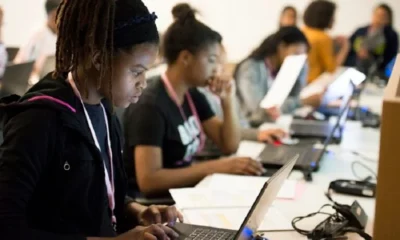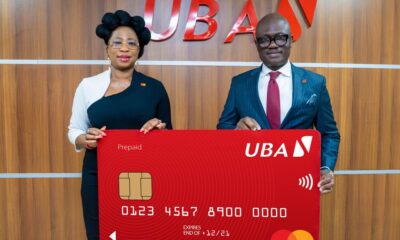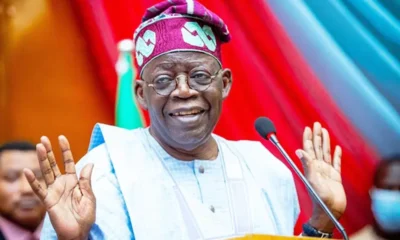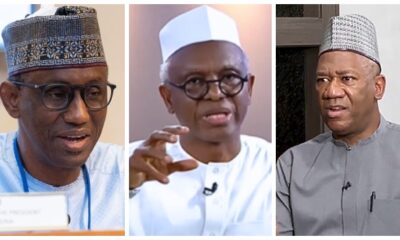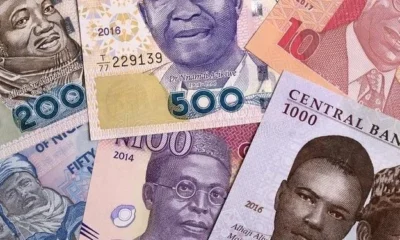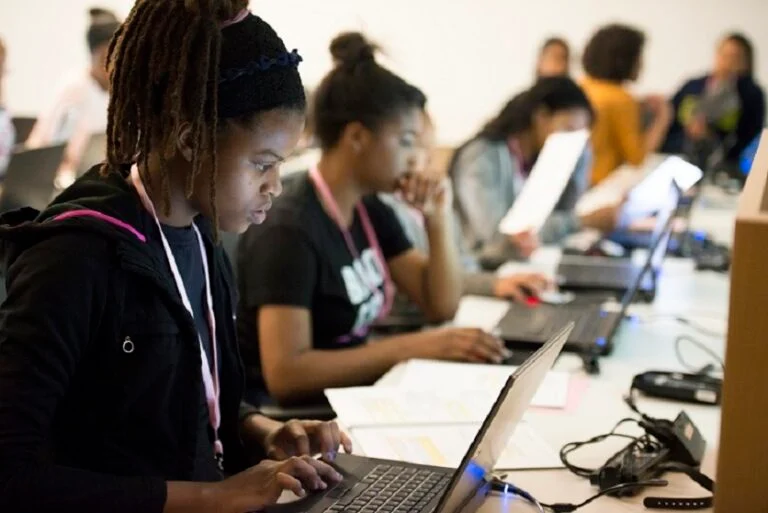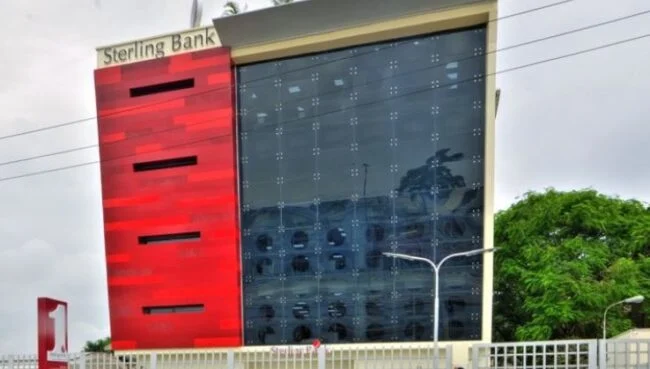Nigeria’s President, Asiwaju Bola Ahmed Tinubu on Friday in Abuja assured traditional rulers in the country that his administration will run an open-door policy that is ready to listen to the yearnings of Nigerians toward transforming the country’s rich potentials to reality.
Speaking at an interactive session with the Royal Fathers under the aegis of National Council of Traditional Rulers of Nigeria (NCTRN), the President apprised them on the decision of his government to remove fuel subsidy, improve security, create jobs and sustain the environment as well as the forthcoming election of principal officers of the 10th National Assembly.
‘‘We are all ears. We are ready to listen at any given time. I promise you an open-door policy and that is the way I will go.
‘‘That open-door policy is for you to call me and send to me at any given time any concern that you might have.
‘‘We may not have it right 100 percent of the time but we must get it right 90 per cent of the time for this country,’’ he said.
Responding to issues raised by the traditional rulers on challenges facing the country, he assured them, saying ‘‘worry not because the country is in good hands.” He added that his administration is very conscious of the expectations of Nigerians.
On the decision to remove fuel subsidy, for which various speakers at the meeting expressed support, the President appealed to the traditional leaders to persuade Nigerians to have faith and that the pump prices of fuel will eventually come down.
‘‘I am grateful that you are paying attention to what I have been doing. You have paid attention to the subsidy removal. Why should we in good heart and sense, feed smugglers and be Father Christmas to neighbouring countries, even though they say not everyday is Christmas?
‘‘The elephant that was going to bring Nigeria to its knees is the subsidy. A country that cannot pay salaries and we say we have potentials to encourage ourselves. I think we did the right thing,’’ he said.
While acknowledging concerns on the need for critical infrastructure in different parts of the country, President Tinubu pledged that any road block on the way of the progress of the Nigeria people would be removed by his government.
‘‘The lamentations about the capital projects, where is the money going to come from if we don’t protect our resources and our boundaries?
‘‘You cannot have development without capital projects,’’ he added.
On the leadership of the National Assembly, the President urged the Royal Fathers to counsel their subjects interested in elective positions on the need to manage their ambitions, and create harmony within the legislative house.
President Tinubu declared that he is ready to work with any elected representative from the National Assembly, stressing that the Nigeria project is of paramount importance to him.
‘‘Nigeria must survive. Nigeria must develop. Nigeria must make progress,’’ he said.
On security, the President reiterated his pledge to Nigerians to prioritise the sector until every Nigerian “goes to sleep with their two eyes closed.’’
He emphasized that the unity and togetherness of the country cannot be compromised, saying that every region of the country would get what it is due.
‘‘We are going to tackle youth unemployment. It is only when we have the prosperity for the country that we can create jobs that will employ our youths.’’
Condemning crude oil theft in the Niger Delta region by a ‘tiny percentage’ of the population, President Tinubu said it was counterproductive to the growth of the economy.
‘‘We need to tame those involved in this sabotage and we will work as hard as possible to ensure that the diversity of this country is used for its prosperity, growth and stability.’’
President Tinubu told the traditional rulers that, with the campaigns and elections over, he is primed for governance, and his government has already signed a law that extends the retirement age of judicial officers from 65 to 70 years, while also addressing pension reforms.
Equally on electricity, the President said a constitutional amendment signed into law now allows Nigeria’s 36 States to generate electricity.
‘‘That’s devolution of power and that should be our contribution to the developmental projects you are looking for and we will continue in ways that will help our people,’’ he said.
President Tinubu thanked members of NCTRN for their early visit and prayers for the success of his administration.
‘‘Without your prayers and support, I cannot stand before you as President and I thank you for your support during the campaigns,’’ he said.
In separate remarks, the Chairman and Co-Chairman of NCTRN, the Sultan of Sokoto, Alhaji Muhammad Saad Abubakar, and Ooni of Ife, Oba Adeyeye Ogunwusi, pledged the support and loyalty of traditional rulers from the six geo-political zones to President Tinubu.
They assured the President of their continued prayers in his resolve to move the country forward under his Renewed Hope agenda.
‘‘We are 100 percent in support of your government and we believe in the will of the Almighty Allah you will move this country forward,’’ the Sultan said, while congratulating him and Vice President Kashim Shettima on their election victory, peaceful transition and assumption of office.
‘‘We will contribute our quota to the development of the country once you reach out to us,’’ the Sultan added.
The Ooni of Ife expressed delight that the country has remained united and focused despite the challenges.
Recounting that the President had said he deserves no pity from anyone because he asked for the job, the Imperial Majesty appealed to President Tinubu not to underestimate the power and reach of traditional rulers in complementing the programmes and visions of the new government.
The President and his deputy listened to presentations from representatives from the six geo-political zones, including Shehu of Borno, Alhaji Ibn Umar Al Amin El-kanemi; Obi of Onitsha, Igwe Alfred Achebe; Emir of Kano, Alhaji Aminu Ado Bayero; Amanayabo of Nembe, Edmund Daukoru; Tor Tiv, Prof. James Ayatse; and Deji of Akure, Oba Aladetoyinbo Aladelusi.

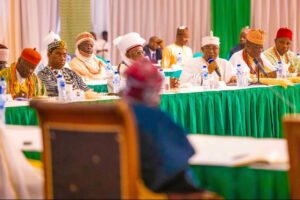




 BIG STORY3 days ago
BIG STORY3 days ago
 BIG STORY20 hours ago
BIG STORY20 hours ago
 BIG STORY4 days ago
BIG STORY4 days ago
 BIG STORY16 hours ago
BIG STORY16 hours ago
 BIG STORY3 days ago
BIG STORY3 days ago
 BIG STORY3 days ago
BIG STORY3 days ago
 BIG STORY2 days ago
BIG STORY2 days ago
 BIG STORY3 days ago
BIG STORY3 days ago










